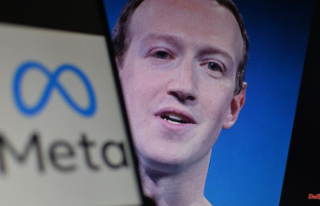Former French racing driver Jean-Pierre Jabouille, architect of Renault's first Formula 1 victory, has died at the age of 80, his family announced on February 2.
Born in Paris on October 1, 1942 in a wealthy environment, holder of an engineering degree, Jean-Pierre Jabouille has only two victories to his name in around fifty F1 races, often forced to retire due to the difficulties encountered in the development of the turbo engine, revolutionary technology in F1 at the time. However, his record also includes a title of European Formula 2 champion, won in 1976.
The driver made his little noticed debut in F1 in 1974 and competed in his first race in 1975. It was his association with Renault that enabled the man nicknamed "the Big Blond" by the press to establish himself in the queen discipline of sport. automobile, not without first attracting jeers. The French manufacturer was then the only one to prefer the turbocharged six-cylinder engine to the "classic" V8 or V12 engine.
"It's simple, Jean-Pierre Jabouille, he was Mr. All-or-Nothing. Moreover, his statistics in F1 challenge ", writes the AUTOhebdo newspaper about this "" Big Blond ", managed to mark the spirits and leave his mark in the history of the discipline ".
A most surprising list
His first success on the Dijon-Prenois circuit – the first in F1 of a turbocharged engine –, Jean-Pierre Jabouille was the craftsman on the track, but also in the workshops. Holder of an engineering degree, he was an integral part of this project at the laborious beginnings. The engine often broke in billowing white smoke, earning his single-seater the mocking nickname "yellow tea pot".
René Arnoux joined him at Renault in 1979 and in July, on the Dijon-Prenois circuit, he climbed for the first time, just like Renault, on the top step of the podium. The irony is that history will remember more the duel between Arnoux and Canadian Gilles Villeneuve (Ferrari) for second place than his victory.
“I was only thinking about finishing the race, he told Agence France-Presse (AFP) in 2018. I knew we had a chance if we made it to the end. It was a great pride because it's hard to win in F1. A relief also because I had often been in the lead and, each time, I had experienced reliability problems. »
"We are what we are today thanks to Jean-Pierre, and his legacy lives on," Alpine, which brings together Renault's racing activities, said in a statement Thursday.
Consequences that prevent him from coming back
It will then be necessary to wait for the Austrian Grand Prix, more than a year later, to see "the Big Blond" win again and, for the last time, in F1, not without having retired fourteen times between his two triumphs.
As turbo technology became the norm in F1, Jean-Pierre Jabouille gave up his place at Renault to Alain Prost, after breaking both legs at the end of the 1980 season. Then he joined Ligier the following season , but quickly realizes that the after-effects of his injuries prevent him from returning to the highest level. He then decided to leave F1.
This will not prevent him from declaring, in another interview with AFP, in 2019: “At the moment, we go out, we go for a walk in the grass and we come back. We have made enormous progress in terms of material absorption and we should put barriers around the circuits so that the car is slightly damaged in the event of going off the road without risk for the driver. »
The driver will then return to his first love, endurance, with Peugeot. Already rich with two third places at the 24 Hours of Le Mans in 1973 and 1974 with Matra, he obtained two more in 1992 and 1993 with the lion brand. He then took over the management of Peugeot-Sport until 1995, before creating his own endurance team, Jabouille-Bouresche Racing.












